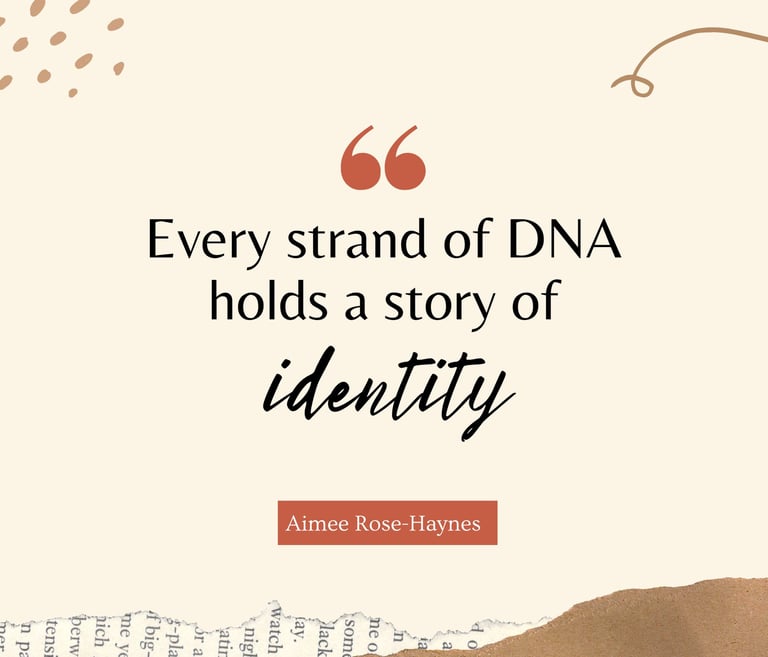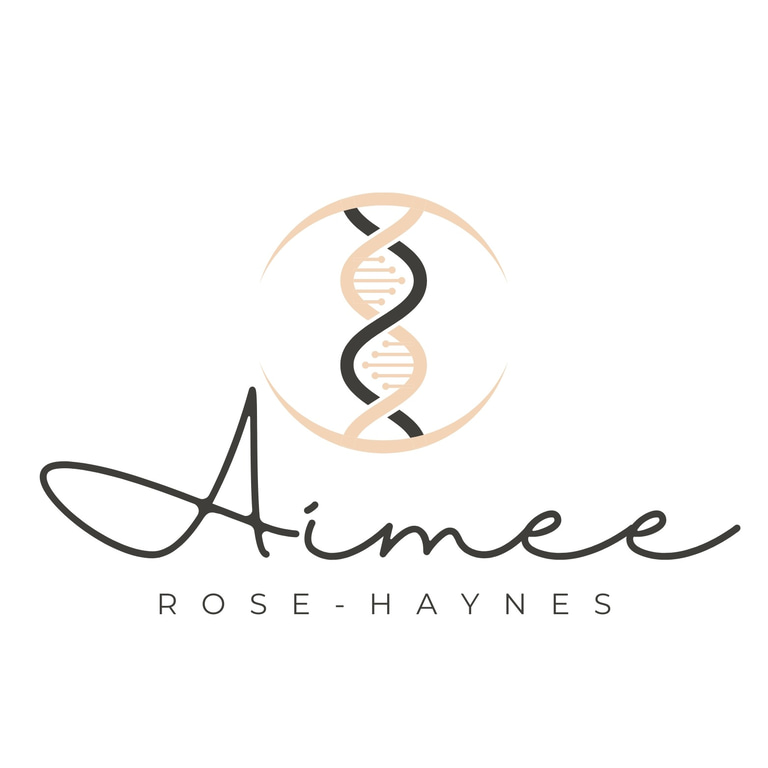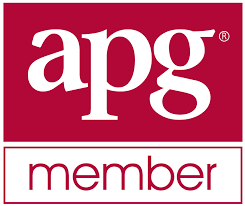Honoring heritage and reuniting families
The Story in Our Strands: How DNA Connects Us
DNA is more than just a sequence of genes. It is a record of who we are, where we come from, and who we are connected to. Whether you are uncovering unknown family ties, building a deeper family tree, or navigating life as an adopted person, donor-conceived person, or NPE, your DNA holds the key to your biological story. Today, genetic testing is a powerful and accessible tool for reclaiming identity, finding connection, and making sense of the past.
-Aimee Rose-Haynes
9/13/20253 min read


From Double Helix to Discovery: How DNA Became a Multi-Billion Dollar Gateway to Our Roots
In 1953, when James Watson and Francis Crick revealed the structure of DNA as a double helix, the world gained a new understanding of how genetic information is passed from one generation to the next. That discovery laid the foundation for a scientific revolution that has transformed the way we understand health, identity, and ancestry. What started as a research breakthrough has grown into a multi-billion dollar global industry that now reaches into medical labs, research institutions, and even the homes of curious individuals eager to trace their roots.
DNA in Medicine and Scientific Research
For many years, DNA remained the domain of scientists and medical researchers. But everything changed with the completion of the Human Genome Project in 2003. With the full genetic map of human DNA finally sequenced, researchers began uncovering how certain genes influenced health, disease, and even our response to medications. This opened the door to personalized medicine and targeted treatments, helping doctors detect genetic conditions early and develop therapies that are tailored to an individual’s unique genetic makeup.
Biotech companies, pharmaceutical firms, and universities saw enormous potential in harnessing genetic data to improve health outcomes. As a result, DNA testing has become a cornerstone of modern medical research and diagnostics.
The Rise of DNA in Genealogy and Personal Discovery
While DNA made waves in the world of medicine, a quieter but equally powerful movement was growing among individuals who wanted to understand their biological heritage. Adopted individuals, people born through donor conception, and those who discovered they were NPE (not parent expected) began turning to consumer DNA testing to find answers about their identity.
Today, with a simple saliva or cheek swab test, people can connect with previously unknown relatives, confirm family stories, or uncover long-lost branches of their family tree. Even for those without surprises in their family history, DNA testing adds a new layer of evidence that helps confirm or extend genealogical research.
Autosomal DNA, Y-DNA, and mitochondrial DNA (mtDNA) testing each offer unique ways to explore different parts of one’s ancestry. These tools help genealogists break through brick walls and verify paper trails. And thanks to the growing popularity of testing, many of these services are now affordable and easy to use.
A Multi-Billion Dollar Global Industry
The demand for consumer DNA testing has skyrocketed over the past decade. Companies like AncestryDNA, 23andMe, MyHeritage, FamilyTreeDNA, and others have tested tens of millions of individuals worldwide. What began as a niche service for hobbyist genealogists has grown into a global business that spans healthcare, heritage, and innovation.
If you're wondering which test to start with, I recommend starting with AncestryDNA first due to the largest testing database of over 25 million testers. Next, I would do an My Heritage DNA test due to how budget friendly it is and its an easy cheek swab. Their database is around 9 million testers and there have a good population of European testers.
But as this industry expands, so do conversations about ethics, privacy, and the emotional impact of unexpected discoveries. DNA testing can change lives, but it can also raise complex questions. For those navigating those revelations, there are growing numbers of support groups, counselors, and professional genealogists available to help.
Why It Matters
Whether you were adopted, born through donor conception, discovered a misattributed parentage event, or simply want to dig deeper into your family tree, DNA offers a reliable and powerful way to explore your roots. It bridges science and story, connecting biology to identity in a deeply personal way.
If you have ever wondered where you come from, now is the time to find out. The science is accessible, the tools are user-friendly, and the answers you seek may already be waiting in your DNA.


